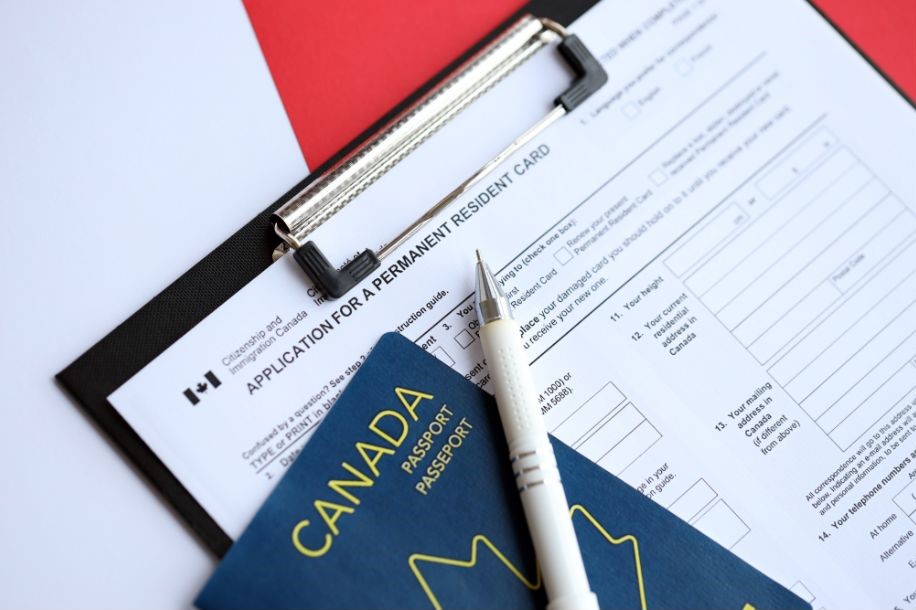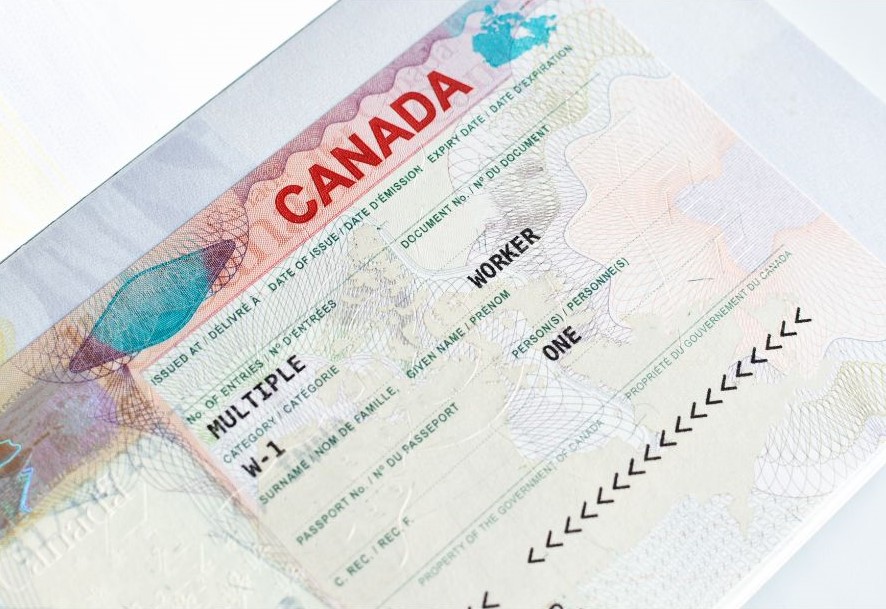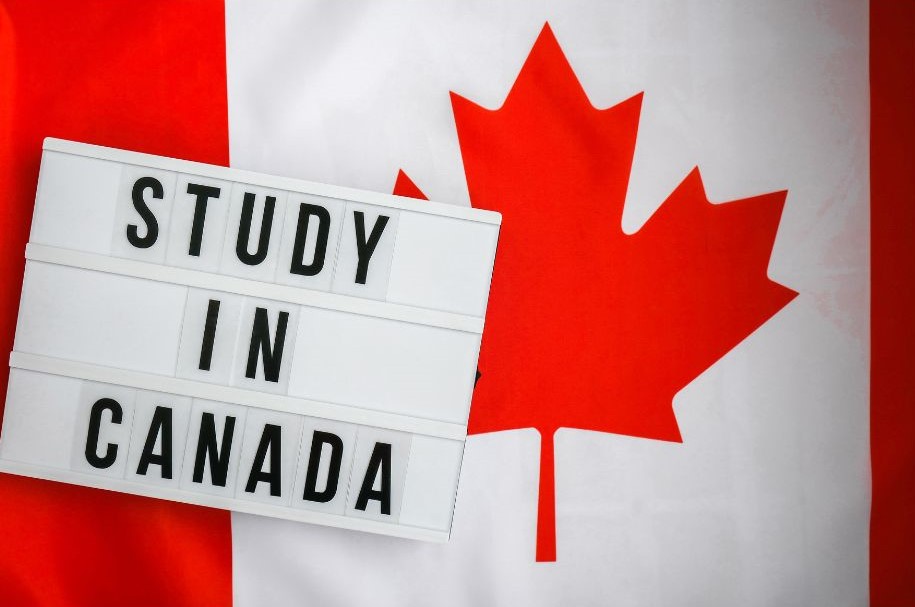Canadian PR – Canadian Permanent Residency
Obtain Canadian Permanent Residency (PR)

Securing Canadian permanent residency (PR) can be obtained by following various routes to suit different needs and circumstances. Whether through Express Entry, Business Immigration, Family Immigration, or the Canadian Experience Class, aspiring Canadian residents have diverse options.
This guide aims to break down these routes and help you decide which path to Canadian PR is best for you.
Canada Express Entry for PR
The Canada Express Entry system is designed to expedite the immigration process for skilled workers. Using a points-based system, candidates are assessed on their skills, work experience, language proficiency, education level, and other factors. The highest-scoring applicants receive invitations to apply for Canadian permanent residency (PR).
Eligibility Criteria for Canada Express Entry Program:
- Valid job offer from a Canadian employer or nomination by a provincial or territorial government.
- Minimum of one year of skilled work experience or two years of skilled trades experience.
- Proficiency in English or French.
- Minimum education requirements.
Canada Express Entry Program Required Documents
- Resume or CV
- Birth certificate
- Language test scores
- Education credentials
- Job offer or nomination letter
- Police certificates
- Medical examination proof
- Proof of funds
Family Members: Eligible family members, including your spouse or common-law partner, dependent children, and parents or grandparents, can accompany you to Canada.

Express Entry Programs for Canadian PR
The Canada Express Entry program is the most popular route to obtaining Canadian permanent residency (PR). Foreign workers can qualify for Canada Express Entry through one of these immigration programs:
1. Canada Federal Skilled Worker Program (FSWP)
The Canada Federal Skilled Worker Program (FSWP) is for skilled workers with foreign work experience who want to immigrate and obtain Candian PR.
Eligibility criteria for the Canada FSWP include:
- Work Experience: At least one year of continuous full-time or equivalent part-time paid work experience in a skilled occupation (National Occupational Classification [NOC] 0, A, or B) within the last 10 years.
- Education: A Canadian secondary (high school) or post-secondary certificate, diploma, or degree, or an equivalent foreign credential. Foreign credentials must be assessed by an Educational Credential Assessment (ECA) to confirm they are equivalent to Canadian standards.
- Language Proficiency: Proof of language ability in English or French, typically through tests like IELTS or CELPIP for English, or TEF for French. You must score a minimum of Canadian Language Benchmark (CLB) 7 in all four abilities: speaking, reading, listening, and writing.
- Points System: The FSWP uses a points-based system where applicants must score at least 67 points out of 100, based on factors such as age, education, work experience, language ability, and adaptability.
2. Canada Federal Skilled Trades Program (FSTP)
The Canada Federal Skilled Trades Program (FSTP) is for skilled workers who want to become Canadian permanent residents based on being qualified in a skilled trade.
Eligibility criteria for the Canada FSTP include:
- Work Experience: At least two years of full-time work experience (or an equivalent amount of part-time work experience) in a skilled trade within the five years before applying.
- Job Offer or Certification: A valid job offer of full-time employment for at least one year or a certificate of qualification in that skilled trade issued by a Canadian provincial, territorial, or federal authority.
- Language Proficiency: A minimum score of CLB 5 for speaking and listening, and CLB 4 for reading and writing, in English or French.
- Skilled Trades: Skilled trades are classified under NOC B, and include categories such as industrial, electrical, and construction trades; maintenance and equipment operation trades; supervisors and technical jobs in natural resources, agriculture, and related production; processing, manufacturing, and utilities supervisors and central control operators; chefs and cooks; and butchers and bakers.
3. Canadian Experience Class (CEC)
The Canadian Experience Class (CEC) is for skilled workers who have Canadian work experience and want to apply for Canadian PR.
Eligibility criteria for the CEC include:
- Work Experience: At least one year of skilled work experience in Canada, in a NOC 0, A, or B job, within the last three years before applying.
- Education: There is no specific education requirement for the CEC. However, if you want to improve your ranking in the Express Entry pool, you can include your educational credentials.
- Language Proficiency: A minimum of CLB 7 for NOC 0 or A jobs, or CLB 5 for NOC B jobs, in either English or French.
- Residence: Applicants must plan to live outside the province of Quebec, as Quebec has its own immigration selection process.
4. Canada Provincial Nominee Program (PNP)
The Canada Provincial Nominee Program (PNP) forms part of the Express Entry system. It allows provinces and territories to nominate individuals who wish to settle in a specific region of Canada by gaining permanent residence (PR). The PNP aims to address local labour market needs and attract individuals with the skills and experience required by the province or territory.
Eligibility criteria of the Canada PNP include:
- Provincial Nomination: To qualify under the PNP, a Canadian province or territory must nominate you. Each region has its own streams and criteria, often targeting specific groups such as skilled workers, semi-skilled workers, business people, or recent graduates from local institutions.
- Express Entry Linked Streams: Many provinces and territories have Express Entry-aligned streams. You must first be eligible for one of the federal Express Entry programs (FSWP, FSTP, or CEC) and then receive a nomination from a province or territory. This nomination adds 600 points to your Comprehensive Ranking System (CRS) score, virtually guaranteeing an Invitation to Apply (ITA) for permanent residency.
- Variety of Streams: PNPs may include streams for:
- Skilled Workers: For those with experience in high-demand occupations.
- Semi-Skilled Workers: For workers in essential industries, often with job offers.
- International Graduates: For students who have completed post-secondary education in Canada.
- Entrepreneurs and Investors: For individuals looking to start or invest in a business in Canada.
Business Immigration Programs for Canadian PR
For experienced businesspeople, Canada offers several business immigration programs which lead to permanent residence (PR):
- Business Start-Up: For entrepreneurs with innovative business ideas that can create jobs in Canada. Applicants need sufficient funds to support themselves initially.
- Business Investor: For those with a minimum net worth of CAD 2 million, willing to invest at least CAD 200,000 in a Canadian business.
- Self-Employed: For individuals with relevant experience who can contribute to the Canadian economy, with sufficient funds for initial support.
Family Immigration Leading to Canada Permanent Residence (PR)
Canadian citizens or permanent residents can sponsor family members for permanent residency (PR). Eligibility requires proving a genuine relationship with the sponsor, who must provide financial support.
Eligible Family Members:
- Spouse, conjugal, or common-law partner
- Parent or grandparent
- Dependent child, sibling, niece, nephew, and orphaned grandchildren
Canadian Sponsor Requirements:
- Must be at least 18 years old and a Canadian citizen or permanent resident.
- Household income must meet the minimum necessary level.
- Agreement to financially support the sponsored person and accompanying family members.
- Undergo a background check.
Canada Caregivers Program for PR
Qualified caregivers who have cared for children, people with high medical needs, or elders for at least two years can apply for Canadian permanent residency (PR). The program also allows caregivers to bring their families to Canada.
Canadian PR on Humanitarian and Compassionate Grounds
This program offers a route to Canadian PR for individuals facing exceptional circumstances when other categories do not apply.

Benefits of Canadian Permanent Residency (PR)
Standard Benefits of PR:
- Access to social programmes, including healthcare and education.
- Ability to work without a visa.
- Ability to sponsor family members.
Emotional Benefits of Permanent Residence:
- Stability and security.
- Pride in being part of the Canadian community.
- Rights and privileges similar to Canadian citizens.
Canadian Citizenship vs. Permanent Residency
Permanent residency allows you to live in Canada, whereas citizenship grants full legal membership, including the right to vote, hold office and apply for a Canadian passport. Canadian permanent residents can apply for Canadian citizenship after five years.
Canadian Permanent Resident Travel Document (PRTD)
A Canadian PRTD allows permanent residents to enter and exit Canada and travel internationally. Unlike passports, it serves as proof of PR in Canada and does not expire.
Canadian Permanent Residency Visa
The Canada PR visa proves you have been granted permission to live in Canada permanently, allowing you to live, work, and study without restrictions. The Canada Express Entry system is the most common route to obtain the Canada permanent residency visa.
Canada Permanent Resident Card
The Canada PR card is an identification card that proves the holder's permanent residency in Canada is valid for five years. After five years, Canadian permanent residents can apply for citizenship.


Let Immtell Help You Secure Canadian Permanent Residency
Ready for Canadian PR? Our experts guide you through every step of the process to achieve permanent residency in Canada. Start your journey today!
Ready for Canadian PR? Our experts guide you through every step of the process to achieve permanent residency in Canada. Start your journey today!



